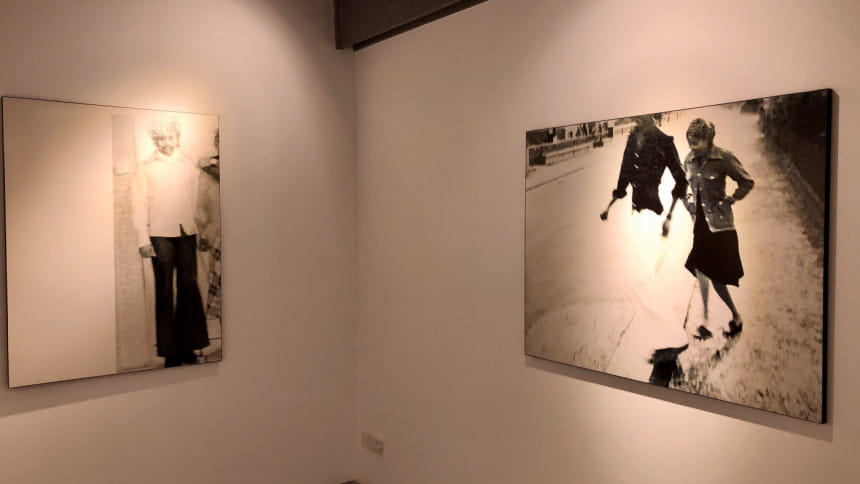‘Anatomies of Tongues’ explored in ‘Chobi Mela Shunno’

While the world celebrates International Mother Language Day, the special edition of Chobi Mela, in association with their cultural partner Colomboscope, sets a thought-provoking linguistic intervention through 'Anatomies of Tongues'. With core elements of voices, testimonies and politics-- a traveling excerpt from Colomboscope 2021, the project sets its ground on the invocation by visual artist and poet Cecilia Vicuña.
The poem reads, "Language is migrant. Words move from language to language, from culture to culture, from mouth to mouth. Our bodies are migrants; cells and bacteria are migrants too. Even galaxies migrate. What is then this talk against migrants? It can only be talk against ourselves, against life itself."
Curator Anushka Rajendran, through a congregation of testimonies proposes the concept, 'Language is Migrant.' Artistes Liz Fernando, Imaad Majeed, Palash Bhattacharjee and Hania Luthufi demonstrate the shaping of language hierarchies and positioning of languages through their individual projects.
One Last Night: Chapter 1- The story of Akhtar Syed Kamal by Liz Fernando
Germany based artist Liz Fernando who finds her roots in conceptual research weaves a tale from her own memories. It initiates from her formative years in Germany interlinked with those of her parents, and also others who share experiences of the lasting impact of migration in its multifariousness. Through aural records paired with some images, One Last Night in Sri Lanka, drifts into her parents' first intimate relationship, the feeling of belonging built while cohabiting, their first friend in a new land, sharing food, hope—'optimism'—as well as a known collective lingual code in the midst of their arrival in a city still divided by the Cold War.
Testimony of the Disappeared
Colombo based poet and performance artist Imaad Majeed inquires how the language—literally and figuratively—of these testimonies is shaped by the processes of bureaucracy. The project finds its roots from the investigate cases of disappearances by the Sri Lankan state since the early 1990s that has affected Tamil and Sinhalese communities in the island over the course of the protracted civil war.
Imaad Majeed approaches the project through conceptual poetry, employs found language and treats the text in various ways, including the Markov Chain algorithm, to explore the presence of absence, the machination of language by the state, and the erasure of corporeal presence and testimony.
Sukhun
Colombo-based vocalist and music educator Hania Luthufi, conceptualised 'Sukhun'. The sonical project ponders upon the meaning of returning home, retuning to nothingness, to emptiness, to relief. Her words dissolve into silence, into breath, into heartbeat and back into silence again. Audiences can listen to the audio component of her project here: https://chobimela.org/participants/colomboscope-2/?fbclid=IwAR24YfXa46xMBBSHKqvueRMrA3_BaGwlj5vgKI-ZGLn5uWHyRj-Wpz1ZmRE
Link Road
Chottogram based artiste Palash Bhattacharjee presented his personal encounters with political and cultural history, through his spoken dialect. Through a film projected in three channels, Palash narrates a tale within the limits of the language and river Karnaphuli. It unfolds efforts to envision existences that are near, remote, marginal, and unknown, relying on remembered fragments and detached assertions of the artiste's perspectives as a child. The film is articulated through his personal memories, and spiritual attachments with the river and language dominant in the marginal and coastal life in the border-region with India and Myanmar. The juxtaposition of language and identities, 'Link Road' is a journey by boat through the river and sporadic recollections of coming to terms with "otherness" as what lies within the self, and not without.

 For all latest news, follow The Daily Star's Google News channel.
For all latest news, follow The Daily Star's Google News channel. 



Comments